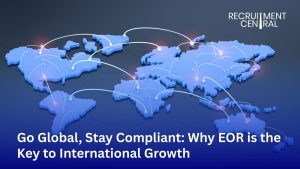In the bustling business hub of Singapore, growing companies face a unique set of recruitment challenges. As the city-state continues to solidify its position as a global economic powerhouse, the competition for top talent has become fiercer than ever. This blog post explores the recruitment challenges faced by expanding businesses in Singapore and offers strategies to overcome them, ensuring you attract the right candidates for your growing team.
Understanding Singapore’s Talent Landscape
Singapore’s workforce is known for its high level of education and skills. However, the small population and low unemployment rate create a tight labor market. According to a 2022 survey by ManpowerGroup, 75% of companies globally reported talent shortages and difficulty hiring – a 16-year high. This scarcity of talent is further exacerbated by the government’s tightening of foreign worker policies, making it crucial for companies to develop effective recruitment strategies.
Recruitment Challenges in Singapore
1. Skills Mismatch
One of the primary recruitment challenges in Singapore is the mismatch between the skills required by employers and those possessed by job seekers. As industries evolve rapidly, particularly in tech and finance sectors, there’s a growing demand for specialized skills that may not be readily available in the local talent pool.
2. High Salary Expectations
Singapore’s high cost of living contributes to elevated salary expectations among job seekers. Growing companies often struggle to match these expectations, especially when competing against established multinational corporations with deeper pockets.
3. Job-Hopping Culture
Singapore has seen a rise in job-hopping, particularly among younger professionals. This trend can make it challenging for growing companies to retain talent and build a stable workforce.
4. Limited Local Talent Pool
With a population of just over 5.6 million, Singapore’s local talent pool is limited. This scarcity is particularly felt in highly specialized roles or emerging industries.
5. Cultural Fit in a Diverse Workforce
Singapore’s multicultural environment, while a strength, can also pose challenges in finding candidates who align with a company’s specific culture and values.
Recruitment Challenges: Strategies to Overcome
1. Leverage Technology in Recruitment
Embrace AI-powered recruitment tools and platforms to streamline your hiring process. These technologies can help you reach a wider pool of candidates and efficiently screen applications, saving time and resources.
2. Focus on Employer Branding
In a competitive job market, your company’s brand as an employer is crucial. Highlight your company culture, growth opportunities, and unique selling points to attract top talent. Utilize social media and professional networks to showcase your employer brand.
3. Invest in Training and Development
Address the skills mismatch by investing in training and development programs. This approach not only helps in filling skill gaps but also attracts candidates looking for growth opportunities.
4. Offer Competitive, Non-Monetary Benefits
While matching high salary expectations might be challenging, offer attractive non-monetary benefits. These could include flexible working arrangements, health and wellness programs, or professional development opportunities.
5. Tap into Government Initiatives
Take advantage of Singapore government initiatives aimed at supporting local employment and skills development. Programs like SkillsFuture and Workforce Singapore (WSG) can provide resources and support for hiring and training.
6. Consider Remote Work Options
Embrace remote work options to expand your talent pool beyond Singapore’s borders. This can help you access specialized skills that might not be available locally.
7. Build a Strong Internship Program
Develop robust internship programs to nurture young talent. This can be an excellent way to identify and groom potential full-time employees who align with your company culture.
8. Emphasize Career Progression
To combat the job-hopping trend, clearly communicate career progression paths within your organization. Show potential candidates the long-term opportunities available if they join your growing company.
9. Cultivate a Diverse and Inclusive Workplace
Embrace diversity and inclusion in your recruitment process. This not only widens your talent pool but also creates a more dynamic and innovative work environment.
10. Partner with Educational Institutions
Forge partnerships with local universities and polytechnics. This can help you tap into fresh graduate talent and potentially shape curriculum to address industry needs.
Must Read: Qualities of a Good Recruitment Firm in Singapore for Foreigners 2024
Conclusion
Navigating recruitment challenges in Singapore’s competitive landscape requires a multifaceted approach. By understanding the local context, leveraging technology, focusing on employer branding, and offering attractive growth opportunities, growing companies can position themselves to attract and retain the right talent.
Remember, successful recruitment in Singapore goes beyond just filling positions. It’s about building a workforce that can drive your company’s growth in this dynamic market. By implementing these strategies and continuously adapting to the evolving job market, your growing company can overcome recruitment challenges and build a talented, diverse, and committed team ready to take on the future.







